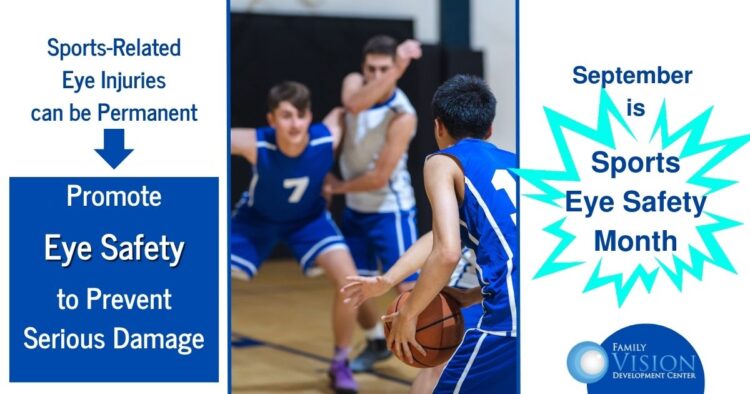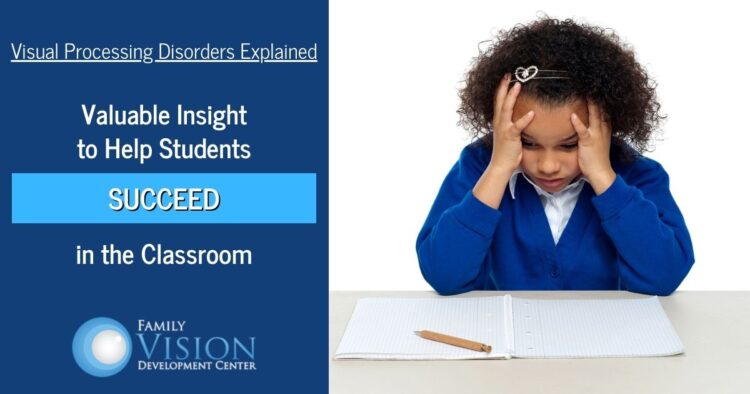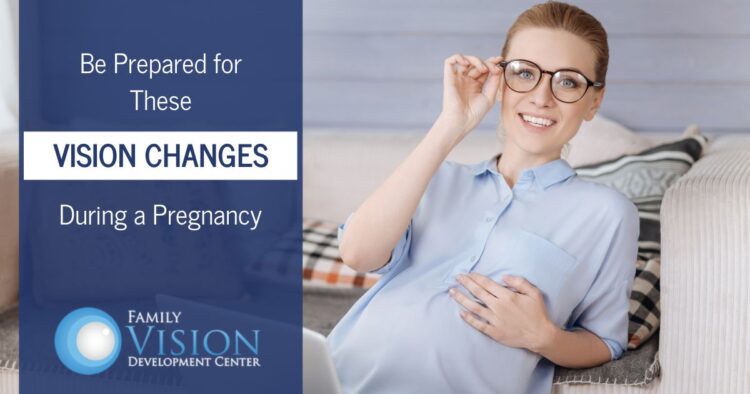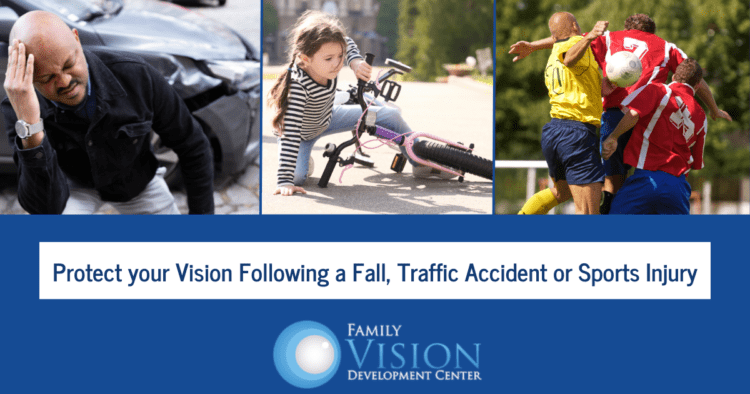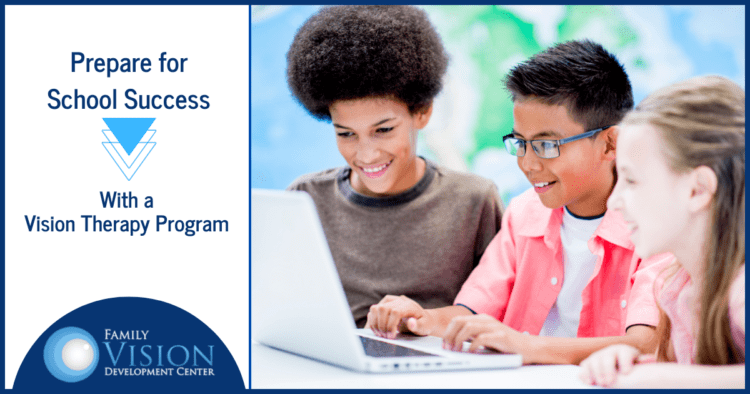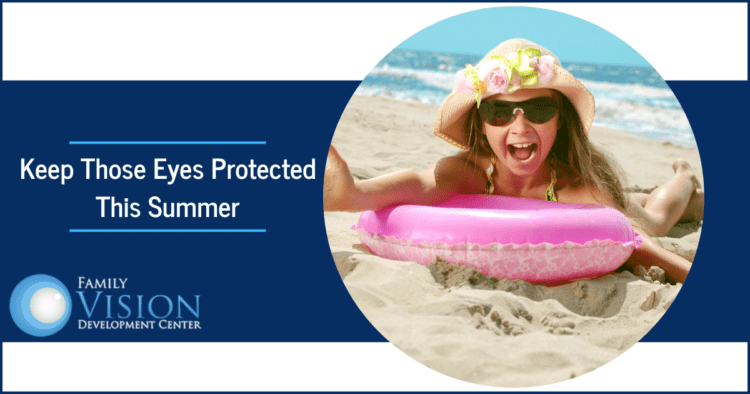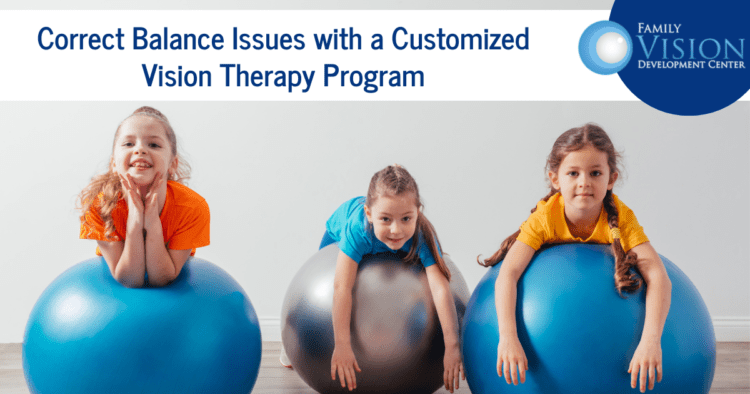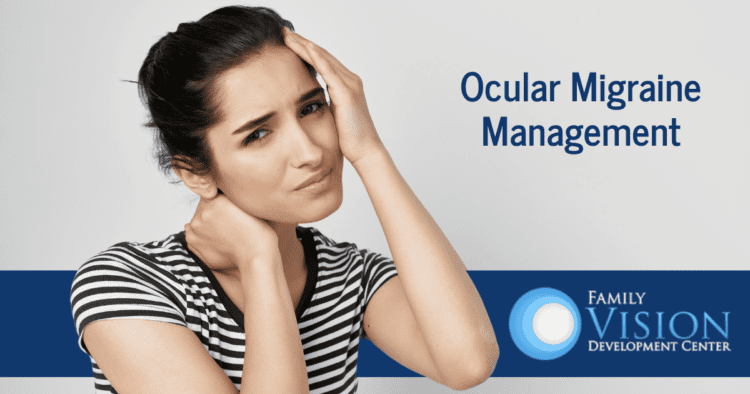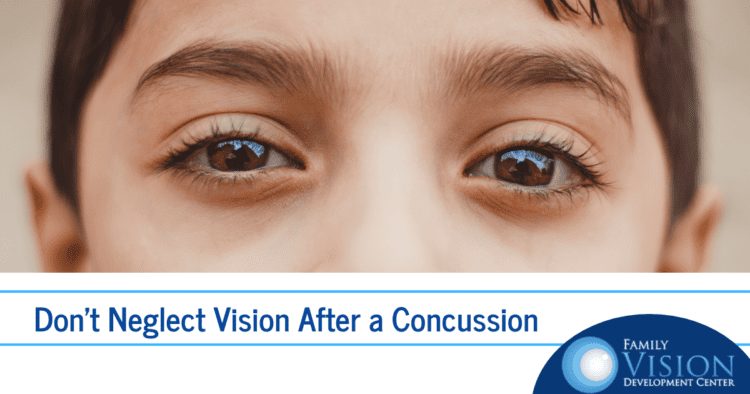Sports are a great way for young athletes to stay active, build discipline and learn about teamwork. However, while the benefits of participating in sports are great, it is also important to address the potential risks and take precautions. Every year, thousands of children sustain serious sports-related eye injuries in sports like baseball, basketball, hockey, racquet sports and others. Therefore, parents, coaches and athletes must all understand that eye safety must be a top priority during sports participation.
Common Eye Injuries for Young Athletes
In order to understand the importance of eye protection during sports, it helps to understand what types of injuries young athletes are in danger of experiencing. Without proper eye protection, the most common types of eye injuries include:
- Corneal abrasions – painful scrapes on the surface of the eye that can occur from flying dust or debris, or from a poke in the eye by a finger.
- Blunt injuries – injuries caused by the impact of an object, such as a flying ball, racquet, elbow or fist.
- Penetrating injuries – these serious injuries occur when a foreign object pierces or punctures the eye, and they must be treated immediately to prevent lasting damage.
Warning Signs of a Sports Eye Injury
Things can happen quickly during a sporting event, and young athletes may not realize they have been seriously injured. Some signs or symptoms to watch out for include:
- Vision loss
- Bleeding on the surface or inside of the eye
- Eye pain
- Double vision
- Redness around the white part of the eye
- Eye or facial swelling
- Cut on or near the eye or eyelid
- Pupil size looks unusual
Ways to Prevent Sports-Related Eye Injuries
When it comes to youth sports, taking the proper precautions up front can be an essential step to prevent eye injuries from occurring.
- Most importantly, young athletes should always wear the proper protective eyewear for a sport with a risk of eye injury. This includes high-risk sports such as baseball, hockey and racquet sports, to lower-risk activities like track & field and swimming.
- Parents and athletes should fully understand the risks of injury for a sport before agreeing to participate.
- Parents should bring their child to Family Vision Development Center for protective eyewear recommendations before beginning any sports program.
- Parents should ensure that proper procedures are in place and that the athletic directors are adhering to all safety recommendations.
- If an eye injury does occur, parents should recognize the warning signs and make sure they get their child evaluated by us immediately to avoid permanent vision damage.
Visit Family Vision Development Center for any Vision Concerns
Some sports-related eye injuries can heal on their own, with only minor treatment needed for pain. However, other injuries can be more serious and can result in damage to the eye structure and even permanent vision loss. At Family Vision Development Center, we can perform a full examination and determine the severity of the injury, recommend the proper treatment, as well as clear a student to return to their sport when appropriate.
Enhance Visual Skills for Better Athletic Performance
Family Vision Development Center offers more to young athletes than just treating injuries. In fact, our sports vision therapy programs are an extremely effective way to sharpen and strengthen the visual skills needed to excel in sports. For example, athletes rely on hand-eye coordination, strong peripheral vision, quick reaction times and accurate tracking ability. A customized sports vision therapy program can take an already high-performing athlete and give them an important edge over their competition.
Whether you are in need of treatment for an eye injury, or want to boost your athletic performance to a new level, our team can provide the right support. You can never be too careful when it comes to your child’s vision, so always consult with us to ensure the proper action is taken following any kinds of sports-related eye injury. Contact us at 630-862-2020 to learn more or to schedule an appointment.
Family Vision Development Center is a full-service vision center offering innovative vision therapy services, sports vision therapy, post-concussive vision rehabilitation, comprehensive vision exams for eyeglasses and contact lenses, management of ocular diseases including glaucoma, diabetes, macular degeneration and cataracts, and a state-of-the-art optical center offering the latest designs in eyewear.
The beginning of a new school year is an exciting time for students and parents alike. However, as students step into new classrooms, meet new teachers, and tackle fresh challenges, it’s important to remember that each child learns and processes information differently. For those with visual processing disorders, the school year can present unique challenges.
Understanding Visual Processing Disorders
Visual processing disorders, also known as visual perceptual disorders, refer to a range of issues that affect how the brain interprets visual information. These disorders can make it difficult for individuals to process, understand, and make sense of visual stimuli. While their eyesight might be normal, they struggle with tasks that require them to interpret and respond to visual information efficiently. This can cause a variety of difficulties in the classroom, including:
- Visual Discrimination: Difficulty distinguishing between similar letters, numbers, or shapes.
- Visual Memory: Struggles with remembering visual information, like spelling words or recognizing familiar faces.
- Visual Motor Integration: Challenges with tasks that involve hand-eye coordination, such as writing neatly or catching a ball.
- Visual Sequential Memory: Problems remembering the order of visual information, affecting reading comprehension and math problem-solving.
- Visual Closure: Difficulty recognizing an object or word when parts of it are missing.
Navigating the New School Year
For students with visual processing disorders, starting a new school year might come with a mix of excitement and apprehension. For both parents and teachers, being aware of potential challenges and adopting strategies to address them can lead to a more successful and fulfilling learning experience.
For Parents:
- Open Communication: Share your child’s needs and challenges with their teachers. This can foster a supportive learning environment and allow teachers to tailor their teaching methods accordingly.
- Professional Assessment: If you suspect your child might have a visual processing disorder, consult with a vision specialist. Early identification and intervention can make a significant difference.
- Home Support: Work with your child on exercises that strengthen their visual processing skills. This could involve puzzles, memory games, and activities that improve hand-eye coordination.
For Teachers:
- Varied Instructional Techniques: Use a mix of visual, auditory, and kinesthetic teaching methods to accommodate different learning styles. This can help students with visual processing disorders grasp concepts more effectively.
- Clear Instructions: Provide clear and concise instructions. Breaking down complex tasks into smaller steps can make them more manageable for these students.
- Visual Aids: Utilize visual aids like charts, diagrams, and color-coding to reinforce learning. These aids can assist students in organizing and comprehending information.
Consult with Family Vision Development Center for Visual Processing Disorders
The team at Family Vision Development Center is dedicated to helping our young patients achieve success in and out of the classroom. We understand that a visual processing disorder can make school extremely difficult and we are trained to help them overcome these challenges. Our vision therapy treatment options are tailored to each individual child to target and correct the unique difficulties they are experiencing. Contact us at 630-862-2020 to learn more about vision therapy or to schedule an appointment.
Family Vision Development Center is a full-service vision center offering innovative vision therapy services, post-concussive vision rehabilitation, comprehensive vision exams for eyeglasses and contact lenses, management of ocular diseases including glaucoma, diabetes, macular degeneration and cataracts, and a state-of-the-art optical center offering the latest designs in eyewear. We are dedicated to keeping our patients comfortable and well-informed and we will explain every exam and procedure and answer all of your questions. We accept both scheduled and emergency appointments, and offer convenient financing and insurance options to ensure that high-quality vision care is available and affordable to all of our patients.
Pregnancy is a miraculous journey that brings about many changes in a woman’s body. One of the less-discussed yet significant changes that can occur during pregnancy is in a woman’s vision. Fluctuations in hormones, increased blood flow, and changes in fluid retention can all contribute to changes in vision. Here are a few changes to watch out for, along with helpful ways to manage them effectively.
Possible Vision Changes During Pregnancy
Blurry Vision: Many pregnant women report experiencing blurry vision, especially during the second and third trimesters. This can be attributed to hormonal changes affecting the shape of the cornea and the eye’s ability to focus properly.
Dry Eyes: Hormonal shifts can lead to reduced tear production, causing dry and irritated eyes. This condition can be uncomfortable and may result in temporary vision disturbances.
Increased Sensitivity to Light: Some pregnant women become more sensitive to bright lights, like sunlight or fluorescent lighting in office buildings, which can cause discomfort.
Changes in Prescription: Pregnant women who wear glasses or contact lenses might notice changes in their prescription. These changes are usually temporary and might revert to normal after pregnancy.
Puffy Eyelids: Puffiness around the eyes can be a common occurrence during pregnancy, and can be caused by water retention or hormone changes.
Flashing Light, Floaters or Spots: These symptoms might be a simple result of dehydration, or they can also be a sign of a dangerous condition known as pre-eclampsia when accompanied by other conditions such as high blood pressure or headaches. Contact your doctor right away if you experience any of these.
Why Do These Changes Occur?
Hormones play a crucial role in many common vision changes. The elevated levels of hormones during pregnancy, like estrogen and progesterone, influence the body’s fluid retention, affecting the eyes’ refractive properties. Additionally, changes in blood circulation can impact the pressure within the eyes, leading to shifts in vision. Other, more serious conditions can also be the cause of vision changes. Therefore, it is essential to pay attention, take the proper precautions and notify your doctor of any changes right away.
Managing Vision Changes During Pregnancy
Unfortunately, there is not much that can be done about changing hormones during a pregnancy, which are a major contributor to vision changes. However, there are some other ways to lessen the likelihood of these changes becoming too disruptive to daily life:
Regular Eye Exams: It’s essential for pregnant women to schedule regular eye exams with their optometrist. Monitoring vision changes and adjusting prescriptions, if necessary, can help ensure optimal eye health throughout a pregnancy.
Hydration: Drinking plenty of water can alleviate dry eyes and promote overall eye comfort. Adequate hydration supports tear production and reduces eye irritation.
Proper Lighting: Being mindful of lighting conditions is important, especially if you’re experiencing light sensitivity. Dimming harsh lights or wearing sunglasses when outdoors can ease discomfort.
Rest and Breaks: If you find yourself working on screens for extended periods, take regular breaks to rest your eyes. The 20-20-20 rule – looking at something 20 feet away for 20 seconds every 20 minutes – can help reduce eye strain.
Cold Compress: Many women find relief from swelling or puffiness around the eyes by placing a cold compress over closed eyes.
Pay Attention to Salt Intake: High sodium levels can cause water retention and increased swelling, which can contribute to those puffy eyelids.
Maintain Blood Sugar Levels: If you have gestational diabetes, closely monitoring and managing your blood sugar levels can help mitigate potential vision changes associated with this condition.
Avoid Rubbing Your Eyes: Rubbing your eyes can worsen dryness and irritation. Instead, use artificial tears to lubricate your eyes when needed.
Family Vision Development Center is Dedicated to your Eye Health
Vision changes during pregnancy can be unsettling, but they are typically temporary and often resolve after childbirth. Maintaining regular eye care, staying hydrated, and adopting healthy habits can go a long way in managing the vision changes that can occur during pregnancy. Remember, if you notice any severe or persistent vision disturbances, it’s crucial to consult your healthcare provider or visit us for a vision exam to rule out any underlying or serious issues. Contact us at 630-862-2020 to schedule an appointment or for any additional information during this exciting time.
Family Vision Development Center is a full-service vision center offering innovative vision therapy services, post-concussive vision rehabilitation, comprehensive vision exams for eyeglasses and contact lenses, management of ocular diseases including glaucoma, diabetes, macular degeneration and cataracts, and a state-of-the-art optical center offering the latest designs in eyewear.
Every year, millions of people worldwide experience concussions, a type of traumatic brain injury (TBI) that can have a lasting impact on their lives. While the initial symptoms of a concussion are well-known, what many may not realize is that some individuals develop a condition called post-concussion syndrome (PCS). Among the various symptoms associated with PCS, vision-related issues are particularly prevalent and can significantly affect a person’s daily activities and overall well-being. Therefore, it is important to understand the importance of promptly addressing vision concerns following a concussion.
Understanding Post-Concussion Syndrome
Post-concussion syndrome refers to a collection of symptoms that persist for weeks, months, or even years after a concussion. These symptoms can vary widely from person to person, making PCS a complex and often misunderstood condition. Common symptoms include headaches, dizziness, fatigue, cognitive difficulties, sleep disturbances, and mood changes. However, visual problems are also a significant aspect of PCS that should not be overlooked.
The Importance of Vision and Its Impairment
Vision is a fundamental sensory system that allows us to perceive and navigate the world around us. It plays a crucial role in our ability to maintain balance, process information, and engage in everyday tasks such as reading, driving, and socializing. When vision is impaired, even simple activities can become challenging and overwhelming.
Post-concussion vision problems can include blurred or double vision, light sensitivity (photophobia), difficulty with eye coordination and tracking, problems with depth perception, and visual disturbances such as seeing flashing lights or floaters. These visual disturbances can greatly impact a person’s quality of life and can affect their ability to return to work, school, or other daily routines.
The Importance of Prompt Treatment
Prompt treatment of post-concussion vision concerns is crucial for several reasons:
- Accurate Diagnosis: Seeking medical attention quickly allows healthcare professionals, including your properly-trained optometrist, to conduct comprehensive evaluations to determine the specific vision issues and their underlying causes. This allows for a tailored treatment plan, maximizing the chances of a successful recovery.
- Rehabilitation and Recovery: Vision therapy and rehabilitation programs can help address the visual deficits associated with PCS. These programs typically include exercises and activities designed to improve eye coordination, visual tracking, and perceptual skills. The earlier these interventions are initiated, the better the chances of a successful outcome.
- Preventing Secondary Complications: Unaddressed vision problems can lead to secondary complications such as chronic headaches, balance issues, and decreased cognitive function. By treating vision concerns promptly, it is possible to minimize the risk of these secondary complications and improve overall recovery.
Post-Concussion Visual Rehabilitation at Family Vision Development Center
The team at Family Vision Development Center has advanced training in neuro-optometric rehabilitation to restore proper visual function following a concussion. This allows us to properly evaluate a patient who exhibits signs of post-concussion vision problems, and prepare an individualized treatment plan using the most current and effective equipment and methods. If you have experienced any kind of head trauma and are concerned about lasting symptoms, contact us at 630-862-2020 for a full evaluation as soon as possible.
Family Vision Development Center is a full-service vision center offering innovative vision therapy services, post-concussive vision rehabilitation, comprehensive vision exams for eyeglasses and contact lenses, management of ocular diseases including glaucoma, diabetes, macular degeneration and cataracts, and a state-of-the-art optical center offering the latest designs in eyewear. We are dedicated to keeping our patients comfortable and well-informed and we will explain every exam and procedure and answer all of your questions. We accept both scheduled and emergency appointments, and offer convenient financing and insurance options to ensure that high-quality vision care is available and affordable to all of our patients.
Summer break presents a valuable opportunity for parents to invest in their child’s development and set them up for success in the upcoming school year – by establishing an individualized vision therapy program. While most individuals associate summer with relaxation and leisure, it can also be a productive time to address specific needs, such as vision-related challenges. A vision therapy program, offered by a qualified professional, can significantly benefit children who struggle with visual issues. By utilizing the summer break to begin a vision therapy program, parents can provide their child with the tools necessary to thrive academically and beyond.
Understanding Vision Therapy
Vision therapy is a customized program designed to enhance and improve visual skills and abilities. It goes beyond traditional eye exams and glasses, targeting the brain-eye connection to treat a variety of vision-related issues. Vision therapy programs at Family Vision Development Center are personalized for each individual patient, and can include a range of specialized techniques, exercises, and tools to develop or improve eye coordination, focus, tracking, perception, and visual processing skills.
Benefits of a Vision Therapy Program for School Success
Many parents don’t realize the wide-reaching effects a vision problem can have on a child. However, when a student has a vision issue, it can affect their success in school in a number of sometimes surprising ways. That is why diagnosing and correcting vision concerns as early as possible is so important. A vision therapy program can lead to improvements in many areas, including:
- Academic Success: Clear and efficient vision is crucial for academic achievement. In fact, children with vision-related challenges often struggle with reading, writing, comprehension, and overall academic performance. A vision therapy program can address these issues by improving eye teaming and tracking, allowing children to read more comfortably, with better focus, accuracy, and comprehension. These enhanced visual skills can directly translate into improved academic performance.
- Increased Confidence: Children who struggle with visual issues may experience a decline in self-esteem and confidence. The challenges they face can make them feel inadequate compared to their peers. By undergoing vision therapy, children can overcome these obstacles, leading to increased confidence in their abilities. As they witness their progress and become more comfortable with their visual skills, their self-esteem will grow, positively impacting various aspects of their lives, including their academic performance and social interactions.
- Improved Sports Performance: Many sports rely heavily on visual abilities, such as hand-eye coordination, depth perception, and peripheral vision. Engaging in a vision therapy program during summer break can help children develop these skills, preparing them to excel in sports activities when the school year begins. The visual skills that are improved in vision therapy can give them a competitive edge, improve reaction times, and boost overall performance on the playing field.
- Reduced Eye Strain and Fatigue: Prolonged screen time, which has become increasingly common among children, can strain the eyes and lead to fatigue and discomfort. Vision therapy programs incorporate exercises to alleviate eye strain caused by digital devices. By completing these exercises during summer break, children can alleviate eye fatigue, making them better equipped to handle prolonged screen time when school resumes.
- Enhanced Concentration and Focus: Certain vision problems can cause a child to frequently lose their place when reading, confuse similar letters and words or maintain clear vision at close or far distances. These challenges can lead to an inability to concentrate and stay focused in the classroom or when trying to complete homework. A vision therapy program is an effective way to improve these visual deficiencies and help a child to improve their ability to absorb information, complete assignments and participate actively in the classroom.
Visit Family Vision Development Center for a Summer Vision Therapy Program
Utilizing summer break to have your child complete a vision therapy program is a proactive step towards ensuring their success in the upcoming school year. By addressing visual challenges, children can unlock their full potential academically, gain confidence, and excel in various areas of their lives. At Family Vision Development Center, we have advanced training in a number of vision therapy techniques in order to provide the most customized treatment options for each patient. Contact us at 630-862-2020 to discover all of the benefits of the right vision therapy program.
Family Vision Development Center is a full-service vision center offering innovative vision therapy services, post-concussive vision rehabilitation, comprehensive vision exams for eyeglasses and contact lenses, management of ocular diseases including glaucoma, diabetes, macular degeneration and cataracts, and a state-of-the-art optical center offering the latest designs in eyewear.
When engaging in outdoor activities, it’s essential to prioritize the health and safety of your eyes with the proper outdoor eye protection. Whether it’s hiking, cycling, or playing sports, exposure to various elements can pose risks to your vision. For this reason, it is important to explore effective ways to protect your eyes during these outdoor activities. Read on to discover safety tips, recommendations, and the importance of proper eye protection while outdoors.
Understanding the Importance of Outdoor Eye Protection
Our eyes are delicate and vulnerable to injuries caused by UV radiation, dust, debris, and other environmental hazards. Prolonged exposure to the sun’s ultraviolet (UV) rays can lead to sunburn of the eyes, cataracts, and other vision problems. Additionally, outdoor activities often involve fast-moving objects or projectiles that can cause traumatic eye injuries. Therefore, wearing appropriate eye protection is crucial to safeguarding your vision and preventing potential long-term damage.
Choosing the Right Outdoor Eye Protection
Selecting the proper eye protection for outdoor activities is essential. Look for sunglasses or sports goggles that provide 100% UVA and UVB protection. Additionally, polarized lenses can help reduce glare and improve visual clarity. Ensure that your eyewear fits securely and comfortably, allowing for a wide field of vision without obstructing your peripheral view. If you require prescription lenses, consider getting sport-specific prescription eyewear or using inserts for your goggles.
Safety Tips for Outdoor Eye Protection
- Wear sunglasses or goggles consistently: Make it a habit to wear your eye protection whenever you’re engaging in outdoor activities, even on cloudy or overcast days.
- Opt for wraparound styles: Sunglasses or goggles with wraparound frames offer better coverage and protection from side glare, wind or blowing sand.
- Use protective eyewear for high-risk activities: Activities such as cycling or playing racquet sports require specialized eye protection to shield against impact injuries.
- Apply sunscreen around the eyes: UV rays can still reach the delicate skin around the eyes. Therefore, it’s important to apply sunscreen specifically designed for the face and to wear a wide-brimmed hat for additional sun protection.
- Stay hydrated: Proper hydration helps prevent dry eyes, especially in arid or windy conditions.
- Take breaks from screen time: If you’re engaging in outdoor activities that involve electronic devices, take regular breaks to reduce eye strain and digital fatigue.
Prioritizing eye protection during outdoor activities is vital for maintaining optimal vision and preventing potential injuries. By following these safety tips, wearing appropriate eye protection, and being mindful of potential hazards, you can enjoy your outdoor adventures while safeguarding your eyes for years to come.
Family Vision Development Center is dedicated to protecting your healthy vision. We provide essential eyecare services such as comprehensive vision exams, vision therapy and a full-service optical center with a great selection of eyeglasses, contact lenses and sunglasses. Contact us at 630-862-2020 with any questions or to schedule an appointment.
Family Vision Development Center is a full-service vision center offering innovative vision therapy services, post-concussive vision rehabilitation, comprehensive vision exams for eyeglasses and contact lenses, management of ocular diseases including glaucoma, diabetes, macular degeneration and cataracts, and a state-of-the-art optical center offering the latest designs in eyewear. We are dedicated to keeping our patients comfortable and well-informed and we will explain every exam and procedure and answer all of your questions. We accept both scheduled and emergency appointments, and offer convenient financing and insurance options to ensure that high-quality vision care is available and affordable to all of our patients.
Maintaining good balance is crucial for our everyday activities, and you might be surprised to learn that our vision can play a significant role in this. Because a vision disorder can greatly impact balance, it is important to explore the role of vision therapy in restoring proper vision, and how the benefits of a vision therapy program can contribute to your overall well-being.
Understanding the Link between Vision and Balance
Vision and balance are closely intertwined. Our visual system provides essential cues that help us maintain equilibrium. It enables us to perceive our surroundings accurately, judge distances, and orient ourselves in space. When our visual system is compromised, it can lead to dizziness and an increased risk of falls. Conditions such as strabismus, amblyopia, and visual processing disorders can impact visual perception, leading to difficulties in maintaining balance.
How Vision Therapy Can Help
Vision therapy is a non-invasive and effective treatment option for improving visual skills. By targeting the specific visual deficiencies causing balance problems, vision therapy aims to strengthen the connection between the eyes, brain, and body. Through a series of customized exercises and activities, vision therapy helps individuals develop better eye coordination, eye tracking, depth perception, and spatial awareness. These improvements have a direct positive impact on stability.
The Benefits of Vision Therapy for Balance
Engaging in vision therapy can provide several benefits for individuals struggling with balance issues. Improved visual skills allow for more accurate perception of the environment, reducing the risk of falls and injuries. Vision therapy also enhances overall body coordination, helping individuals maintain stability during various physical activities. By targeting and treating the root cause of visual deficiencies, vision therapy promotes long-term improvements in balance, leading to increased confidence and independence in daily life.
Family Vision Development Center has the Right Vision Therapy Program
When considering vision therapy for balance improvement, it’s important to work with a qualified optometrist or vision care specialist. The team at Family Vision Development Center has advanced training in a variety of vision therapy techniques in order to treat a range of vision disorders. Because balance issues can be a result of many different vision conditions, we evaluate each patient through a comprehensive vision exam. Once your diagnosis has been determined, we will tailor a custom vision therapy program to your specific needs.
Don’t underestimate the impact of vision on your overall well-being. Vision therapy offers a solution to address visual deficiencies, improve balance, and reduce the risk of falls. If you or a loved one are experiencing these types of issues, contact Family Vision Development Center at 630-862-2020 to learn more about our vision therapy options or to schedule your appointment.
Family Vision Development Center is a full-service vision center offering innovative vision therapy services, post-concussive vision rehabilitation, comprehensive vision exams for eyeglasses and contact lenses, management of ocular diseases including glaucoma, diabetes, macular degeneration and cataracts, and a state-of-the-art optical center offering the latest designs in eyewear.
An ocular migraine is a unique type of migraine that affects the vision. It is characterized by a sudden onset of a visual distortion, such as flashing lights, zigzag lines, or blind spots, in one or both eyes. These visual disturbances usually last for 10 to 30 minutes, and they are often followed by a headache.
Experts don’t always agree on the exact cause of ocular migraines. But they are typically thought to be caused by a temporary disruption of blood flow to the brain. They tend to be more common in women than men, and they usually begin to appear while people are in their 20s or 30s.
Because of its effect on vision, an ocular migraine can be a very disruptive condition. But with proper precautions and care, most people can manage their symptoms relatively well. However, it is important to note that the symptoms of an ocular migraine can often mimic those of other, more serious conditions. Therefore, you should always consult with your eye doctor any time you experience a change in vision.
Ocular Migraine Symptoms
The symptoms of an ocular migraine can vary from person to person. Some people may only experience mild visual disturbances, while others may have more severe symptoms, along with a headache. The most common symptoms include:
- Flashing lights or zigzag lines in the vision
- Blind spots
- Blurred vision
- Double vision
- Sensitivity to light and noise
- Nausea and vomiting
- Headache
The visual disturbances typically last for 10 to 30 minutes, but they can sometimes last for up to an hour. The headache, if present, usually begins after the visual disturbances and can last for several hours or even days. Again, if you experience any of the symptoms of an ocular migraine, it is important to see a doctor to get a proper diagnosis and treatment.
Ocular Migraine Management
Unfortunately, there is no surefire way to completely prevent an ocular migraine from occurring. In other words, there is no “cure” at this time. However, there are some things that can help reduce the frequency and severity of attacks. These can include:
- Avoiding triggers: Some people find that certain things, such as stress, lack of sleep, or certain foods, can trigger an ocular migraine. Paying attention to these triggers, and doing your best to avoid them, can help to reduce the risk of attacks.
- Migraine medications: typical over-the-counter medications such as acetaminophen, ibuprofen or naproxen are often enough to alleviate symptoms. More serious cases can be handled with prescription medications.
- Making lifestyle changes: Certain activities can increase the chance of an ocular migraine occurring. Therefore, certain lifestyle changes can help reduce the number or severity of episodes:
- Drink plenty of fluids to prevent dehydration
- Cut down on salty foods
- Avoid too much alcohol or caffeine
Visit Family Vision Development Center for Total Vision Care
At Family Vision Development Center, our philosophy of whole body wellness extends beyond the eyes. Our one-on-one approach provides personalized care and individualized treatment options to maintain healthy vision for life. Visit us for regular vision exams in order to properly track any changes in vision. And contact us immediately if you ever have any vision concerns. Our professional team is here to help at 630-862-2020!
Family Vision Development Center is a full-service vision center offering innovative vision therapy services, post-concussive vision rehabilitation, comprehensive vision exams for eyeglasses and contact lenses, management of ocular diseases including glaucoma, diabetes, macular degeneration and cataracts, and a state-of-the-art optical center offering the latest designs in eyewear. We are dedicated to keeping our patients comfortable and well-informed and we will explain every exam and procedure and answer all of your questions. We accept both scheduled and emergency appointments, and offer convenient financing and insurance options to ensure that high-quality vision care is available and affordable to all of our patients.
A concussion is a traumatic brain injury (TBI) caused by a bump, blow, or jolt to the head that can change the way your brain normally works. Concussions can also occur from a fall or a blow to the body or even a whiplash injury that causes the head and brain to move quickly back and forth. Concussions do not require a direct impact to the head nor do they only occur if you lose consciousness.
The severity of a concussion can range from mild to severe, and symptoms can last for days, weeks, months, or in some instances, years. Some people with concussions have no symptoms at all, while others experience a wide range of symptoms, including:
- Headache
- Dizziness
- Nausea and vomiting
- Balance problems
- Blurred vision
- Double vision
- Sensitivity to light and noise
- Fatigue
- Difficulty thinking or concentrating
- Memory problems
- Changes in mood or behavior
Vision Problems After a Concussion
Vision problems are a common symptom of concussion, and they can range from mild to severe. Some people with concussions may experience only temporary vision problems, while others may have long-term problems.
The most common vision problems after a concussion include:
- Headaches which can be intermittent or constant but exacerbated by reading or computer work
- Difficulty reading or using the computer
- Blurred vision
- Double vision
- Difficulty focusing
- Eye strain
- Eye fatigue
- Sensitivity to light and glare
- Eye pain
- Problems with depth perception
- Abnormal eye movements
- Skipping words or losing your place when reading
- Balance and coordination issues
- Motion sickness
- Brain fog
- Difficulty with memory
Vision problems after a concussion can be caused by damage to the parts of the brain that process visual information and directs action to the eyes themselves. Concussions very rarely result in physical damage to the eyes or eye muscles.
Vision Treatment After a Concussion
If you have experienced a concussion, it is important to see the right eye doctor to have your vision checked. The optometrists at Family Vision Development Center are also neuro-optometric vision rehabilitation specialists who are specially trained in post-concussive vision therapy techniques. Because we are a concussion center that incorporates vision therapy, we can diagnose any vision problems that you may have developed following your concussion and recommend the appropriate individualized treatment options.
There is no one-size-fits-all treatment for vision problems after a concussion. Treatment will depend on the severity of your vision problems and the underlying cause. In some cases, vision problems may resolve on their own with time. However, if the vision symptoms or headaches persist longer than 30 days then vision rehabilitation is going to be key to recovery. The vision rehabilitation involved in this kind of treatment can be an extremely effective way to restore normal visual function following a concussion.
If you have vision problems after a concussion, it is important to be patient and to follow the care instructions you receive following your diagnosis. With time and treatment, most people with vision problems after a concussion will make a full recovery.
Managing Vision Problems After a Concussion
Along with your treatment recommendations, your daily activities can also have an impact on vision recovery. Here are some tips to help you manage vision problems after a concussion and maintain proper visual health on a long-term basis:
- Get plenty of rest.
- Stick to a healthy diet.
- Avoid activities that make your symptoms worse.
- Use eye drops or artificial tears to relieve dryness and irritation.
- Wear sunglasses to protect your eyes from light and glare.
- Use a screen filter on your computer or phone to reduce glare.
- Take breaks from reading or using electronic devices to reduce eye strain.
- See us for regular eye exams to monitor your vision and make sure that your treatment is working.
Vision problems after a concussion can be frustrating and can make it difficult to take part in everyday activities. However, the team at Family Vision Development Center is dedicated to restoring your healthy vision and getting you back on your way to reaching your full potential. Contact us as quickly as possible following a concussion in order to start on the right rehabilitation program. Schedule your appointment in our Aurora location by calling 630-862-2020.
Family Vision Development Center is a full-service vision center offering innovative vision therapy services, post-concussive vision rehabilitation, comprehensive vision exams for eyeglasses and contact lenses, management of ocular diseases including glaucoma, diabetes, macular degeneration and cataracts, and a state-of-the-art optical center offering the latest designs in eyewear.
The most important function of your eyeglasses is, of course, to correct or improve your vision. But adding one or more lens coatings can truly elevate the overall function of your glasses. In fact, some say that eyeglass lens coatings are a must-have for anyone who wears glasses. This is because they not only protect the lenses but can also enhance their performance in various ways.
There are different types of eyeglass lens coatings available, each with its unique features and benefits. The type you should choose largely depends on your lifestyle and personal preferences.
Anti-Reflective Coatings
Anti-reflective coatings, also known as AR coatings, are designed to reduce glare and reflections on the surface of the lens. They improve vision clarity by allowing more light to pass through the lenses, reducing eye strain, and making the glasses nearly invisible. AR lens coatings are ideal for people who work on computers or spend a lot of time in brightly lit environments.
Scratch-Resistant Coatings
Scratch-resistant coatings are designed to protect the lenses from scratches, making them more durable and long-lasting. They are ideal for people who lead an active lifestyle or work in industries where the glasses are likely to get scratched, such as construction or manufacturing. Additionally, this can be a great option to protect kids’ glasses.
UV Coatings
UV coatings protect the eyes from harmful ultraviolet rays that can cause eye damage and other vision problems. They are particularly useful for people who spend a lot of time outdoors, such as hikers, skiers, or beachgoers.
Blue Light Coatings
Blue light coatings, also known as blue light blocking coatings, are designed to protect the eyes from the harmful effects of blue light emitted by digital screens. They can reduce eye strain and fatigue, improve sleep quality, and prevent long-term damage to the eyes. Remote workers who spend a lot of time in front of a home computer screen might find this option useful. This can also be an important addition to a child’s glasses, as kids spend so much time using digital devices.
Polarized Coatings
Polarized lens coatings are designed to reduce glare and improve visibility in bright environments, such as on the water or snow. They are ideal for people who engage in outdoor activities, such as fishing, boating, or skiing.
Anti-Fog Coatings
Having your glasses fog up when you step outside can be very frustrating, and can also be dangerous in some situations. To help prevent fog from forming on your lenses, an anti-fog coating can be applied which prevents condensation on the lenses, thereby eliminating fogging.
Find the Perfect Lens Coatings at Family Vision Development Center
Our state-of-the-art optical center allows you to customize your perfect pair of glasses. We’ll help you choose the right frames for your face shape, select a color you feel comfortable in, and add the right lens coatings to meet your needs. Schedule your appointment for a vision exam and to explore our large selection of quality frames and lenses by calling 630-862-2020.
Family Vision Development Center is a full-service vision center offering innovative vision therapy services, post-concussive vision rehabilitation, comprehensive vision exams for eyeglasses and contact lenses, management of ocular diseases including glaucoma, diabetes, macular degeneration and cataracts, and a state-of-the-art optical center offering the latest designs in eyewear. We are dedicated to keeping our patients comfortable and well-informed and we will explain every exam and procedure and answer all of your questions. We accept both scheduled and emergency appointments, and offer convenient financing and insurance options to ensure that high-quality vision care is available and affordable to all of our patients.
